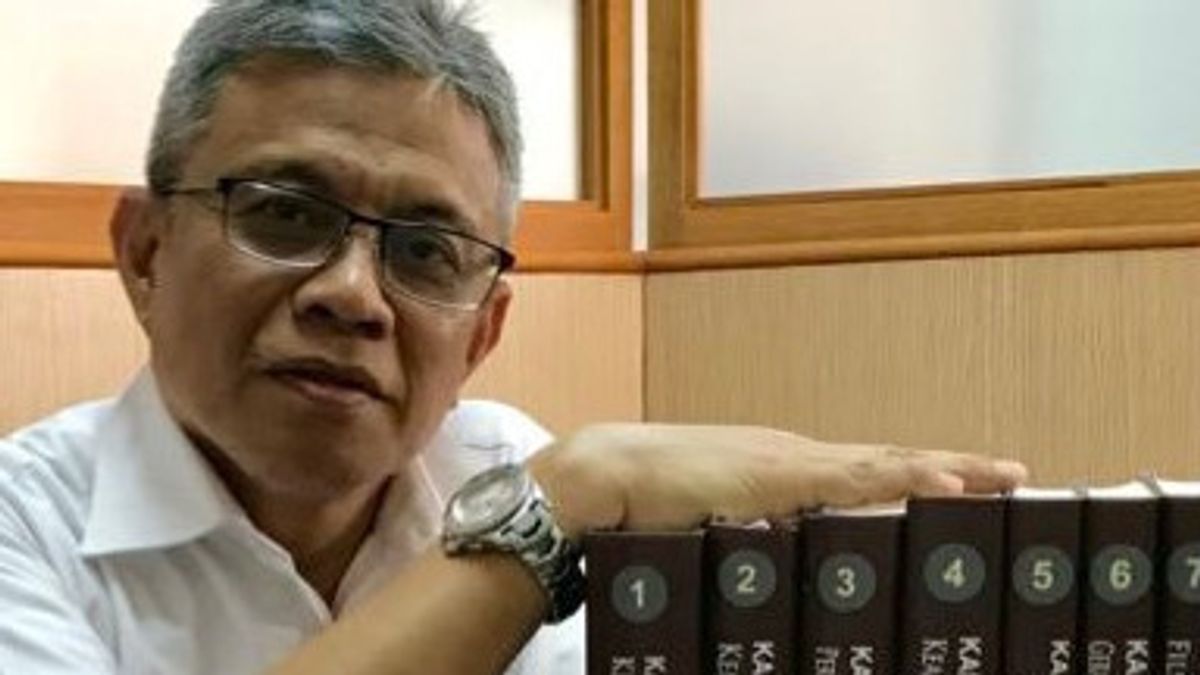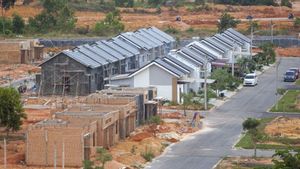JAKARTA - The Jakarta-Bandung High Speed Train (KCJB) project has recently been in the public spotlight because of a viral video of the collapse of the KCJB project pier or pole that hit one of the excavators. Previously, this project was also in the spotlight because of its cost overruns.
Pramadina University Chancellor Didik Rachbini said that the government would not stop the KCJB project even though this project had many polemics. According to him, President Joko Widodo (Jokowi) will continue the project regardless of the risks.
"Pak Jokowi will never stop this, let alone it's already running. So any risks will continue. I don't see any signs of stopping," he said, during a virtual discussion, Thursday, December 9.
Didik said that he also criticized the project. This is because, according to him, this project will increase the burden of the state's debt even though it is not through the state revenue and expenditure budget (APBN).
"As people who understand the economics of infrastructure projects, they will criticize us. This will increase our iCore, the debt is a lot even though it is not through the state budget. But this swollen infrastructure debt has an impact on the economy and later we will not enjoy anything. It will be drained before receiving it. This result is because the period is long," he explained.
Previously, Minister of State-Owned Enterprises (BUMN) Erick Thohir said the Jakarta-Bandung High Speed Rail (KCJB) project needed support from the state budget (APBN). If the support is not given, the project which is already running more than 60 percent will become scrap metal.
"This is when I entered (as Minister of SOEs), the KCJB project was over 60 percent. Is it time to stop? Yes, it means that if you stop, the money will be burned. Everything becomes scrap metal," he said at the Kick Andy Show, quoted Monday, November 15.
According to Erick, the current project financing structure has been improved. So that it can ask for a statement of state capital (PMN) and restructuring, which initially only relied on financing from market mechanisms.
Furthermore, Erick said that the work on the project would continue after Finance Minister Sri Mulyani approved the disbursement of PMN from the APBN worth Rp. 4.3 trillion through PT Kereta Api Indonesia (KAI).
As is known, the projected funding requirement for the Jakarta-Bandung high-speed rail project will swell by around Rp. 27 trillion from the initial calculation.
"It can't be b to b (business to business). This must have an assignment and we present it openly. There is no dustpan," he explained.
Will not return the investment in a short time
In addition, Erick Thohir acknowledged that the KJCB project will not return its investment in a short time. This was in response to the economist's statement Faisal Basri who said that the KCJB project would not return on investment until the end of the world.
Furthermore, Erick said that infrastructure investment is indeed long term. He said, the benefits of the KCJB project will be felt not now but in the next 30 to 40 years.
"Yes, indeed (benefits) of infrastructure projects are long. We will not feel it until we die, maybe those who enjoy our children and grandchildren," he said.
Erick admitted that he did not blame Faisal Basri's views. However, in the project, demand and supply must be considered or supply and demand. Because of that, he said he didn't want to argue.
"I'm not saying that the observer is wrong. But there must be supply and demand thinking. I don't want to debate, because I'm not an economist," he explained.
The English, Chinese, Japanese, Arabic, and French versions are automatically generated by the AI. So there may still be inaccuracies in translating, please always see Indonesian as our main language. (system supported by DigitalSiber.id)











